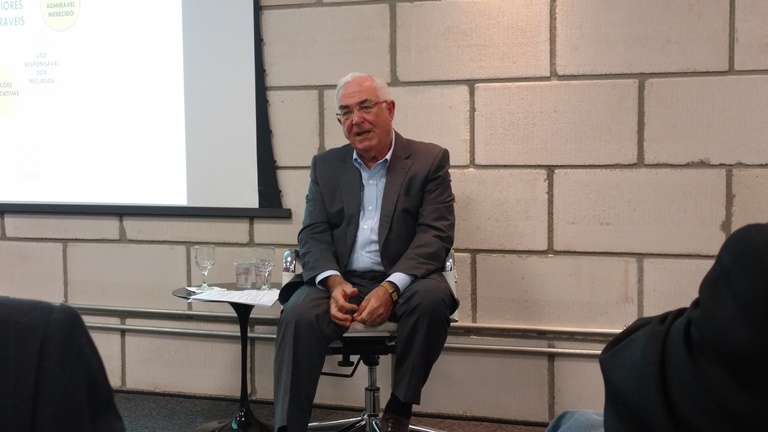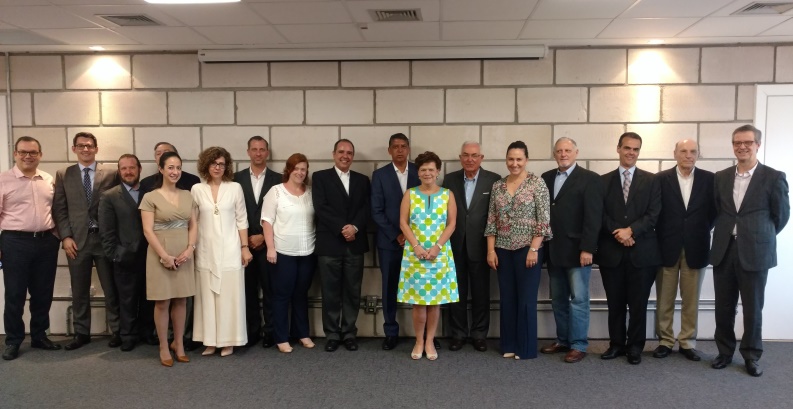Stories of Fibria helping to preserve the forest

André Sollitto
At the sixth meeting of Lidercom, an initiative that brings together senior executives in business communication to discuss the major challenges CEOs face in the market, Jose Luciano Penido spoke about his experiences in the area of sustainability. Chairman of the Board of Directors at Fibria, Penido also acts as an independent advisor to other companies, such as Copersucar, Algar and Química Amparo and is part of the Sustainability Council of Santander

At the meeting with directors of communication, Penido talked about his experience at Fibria, a company that emerged from the merger of Aracruz and Votorantim Celulose e Papel in 2009. He noted that the company had a negative image and was known as a “problematic company.” This was due to the fact that it had been the victim of foreign exchange derivatives which resulted in a loss of an estimated R$ 2.3 billion. Additionally, the company had difficulties in dealing with social issues, such as the MST (Rural Workers Movement). Still, the company has been admired for many aspects of its business, and for years has been a leader in the industry and an example of environmental sustainability.
Good governance, sustainability and focus on innovation and technology are central to Fibria’s strength and reputation. Penido often uses the concept of “value constellation” to explain the company’s vision, which aims to create lasting relationships and interactions with stakeholders. According him, the company should help the client increase their production and connect them to a network of winners. Its quality products must have a focus on the client. The company’s vision is to promote the forest as a producer of economic value and its paper products are a good example of this.
In an effort to promote sustainable practices, Fibria has created partnerships with local communities and has built positive relationships with social movements such as MST, Penido said. The company seeks to come to terms with the resident population of settled land by planting a part of the eucalyptus crops and then encouraging family farms to harvest the rest of the land.
This approach has produced good results in both business and social terms. The company was able to settle the debts of Aracruz and also payed two billion in dividends. Fibria is the world’s only forestry company included in the Dow Jones Sustainability Index and the stories of transformation in the lives of people arise naturally from this conscientious approach.
Penido gave as an example the story of a lady in Mato Grosso, a squatter from MST, who had been struggling until she was encouraged to plant vegetables, when the harvest promised to be good. She said she was happy that her daughters, who had been subjected to prostitution in Brasilia, were returning home to help with the small plantation. For him, these stories can serve as examples for other companies and should also be shared with the public. Moreover, it is necessary to show that forestry is a high-tech business, and “not just a lot of sweaty men chopping wood and getting bitten by mosquitos,” he said.

COMENTÁRIOS:
Destaques
- Em entrevista a CNN, CEO do Pacto Global da ONU no Brasil fala sobre comunicação e sustentabilidade
- EMIS é nova associada da Aberje
- Lab de Comunicação para a Sustentabilidade discute oportunidades e desafios para ações sociais
- Seminário da USP debate opinião, política e democracia na atualidade
- Aberje recebe lançamento do livro “Diálogos com o futuro” da Rede Educare, com patrocínio da Bayer
ARTIGOS E COLUNAS
Paulo Nassar Fala na abertura do Seminário Opinião Pública, Política e DemocraciaRegina Macedo Narrativas femininas: amplitude e diversidade na comunicaçãoPatricia Santana de Oliveira Qual retorno do investimento em PR?Marcos Santos Esporte como Plataforma de MarcaCarlos Parente Na vida e no mundo corporativo, não há texto sem contexto


























